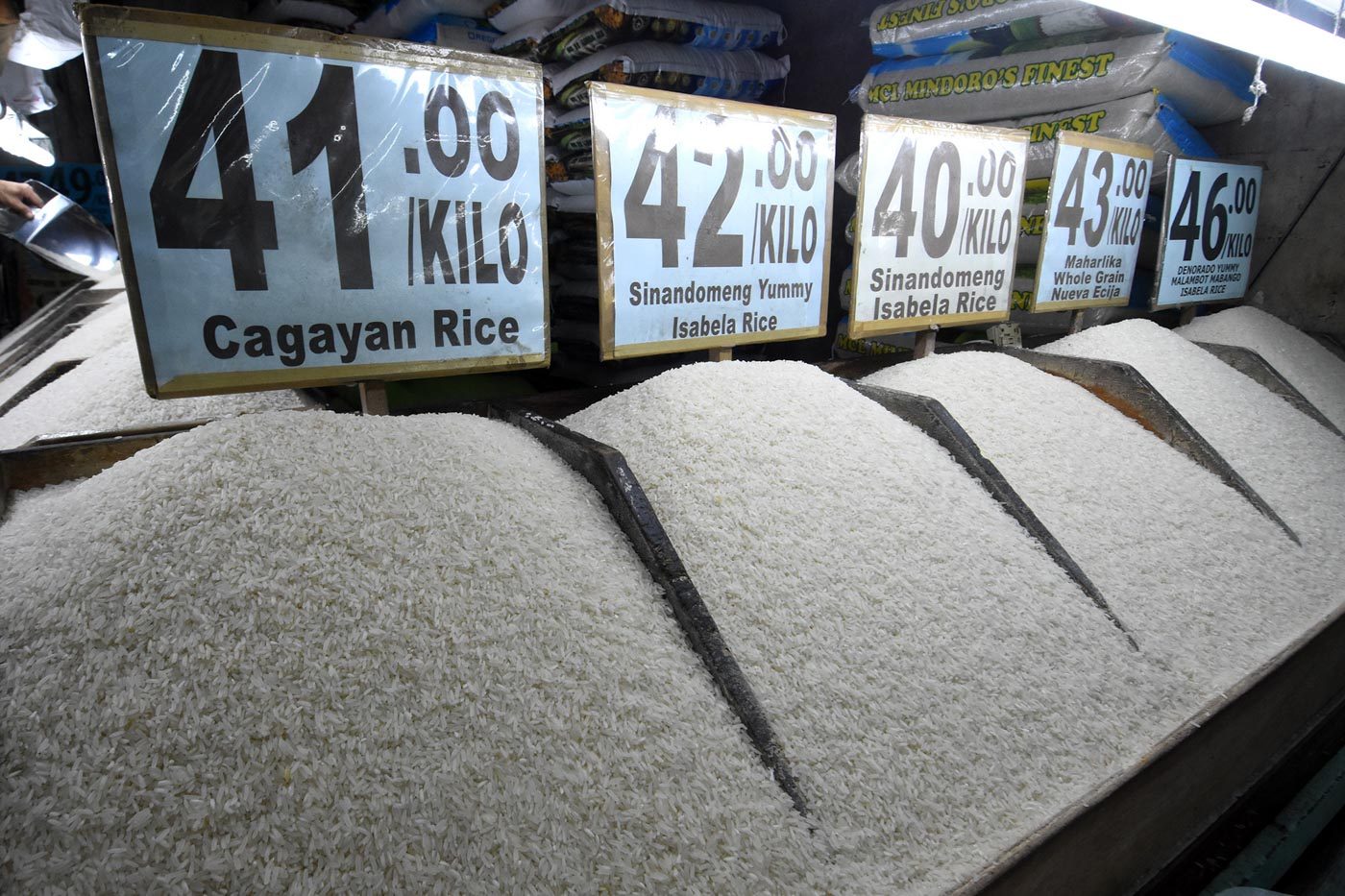SUMMARY
This is AI generated summarization, which may have errors. For context, always refer to the full article.

MANILA, Philippines – Voting 14-0, the Senate approved on Wednesday, November 14, the bill seeking to lift restrictions on rice importation to help address the country’s soaring inflation.
Senate Bill No. 1998 or the rice tariffication bill seeks to amend Republic Act (RA) No. 8178 or the Agricultural Tariffication Act of 1996 and replace the quantitative restriction (QR) on rice imports.
The bill is among the measures pushed by President Rodrigo Duterte and his economic managers to address high rice prices. (READ: Duterte to rice cartels: Stop messing with me)
Senator Cynthia Villar, sponsor and principal author of the bill, said the staple grain is the only agricultural commodity in the country that has a QR. This, in turn, limits the inflow of imported rice in the country.
She added that the lifting of the QR would also remove all “unnecessary intervention” of the government in the rice market.
Senator Joel Villanueva, also an author of the bill, said it could curb smuggling.
“We hope that the immediate enactment of this measure will ensure that our country would not have to suffer rice shortages and, at the same time, discourage the smuggling of rice, a plague that has long been infecting this country,” Villanueva said in a statement.
The bill seeks to replace the QR with the following tariffs:
- For the minimum access volume committed by the Philippines to the World Trade Organization (WTO), the indicated rates in the applicable provisions of the WTO agreement on agriculture shall apply.
- For ASEAN member states, 35% or the import duty rate commitment of the Philippines for rice importation, pursuant to the ASEAN Trade in Goods Agreement.
- For non-ASEAN member states, 50% or the tariff equivalent calculated in accordance with the WTO agreement on agriculture upon the expiration of the waiver relating to the special treatment for rice of the Philippines, whichever is higher.
The House approved a counterpart measure in August 2018. A bicameral conference committee will now be convened to thresh out differences between the two versions.
Fund for rice farmers, cooperatives
If passed into law, a Rice Competitiveness Enhancement Fund would also be created to protect the rice industry from sudden or extreme price fluctuations. The Senate set it at a minimum of P10 billion annually for 6 years.
The fund seeks to provide various forms of assistance to rice farmers, such as development of inbred rice seeds, rice farm equipment, and skills enhancement.
Under the measure, the fund would be allocated and disbursed to rice-producing areas, as follows:
- 50% for grants to eligible farmers’ associations, registered rice cooperatives, and local government units, in the form of rice farm equipment such as tillers, tractors, seeders, millers, and dryers, among others
- 30% for the development, propagation, and promotion of inbred rice seeds to rice farmers
- 10% for loans with minimal interest for rice farmers and cooperatives
- 10% for extension services, such as teaching skills on rice crop production, modern rice farming techniques, seed production, farm mechanization, and knowledge/technology transfer through farm schools nationwide
– Rappler.com
Add a comment
How does this make you feel?





There are no comments yet. Add your comment to start the conversation.